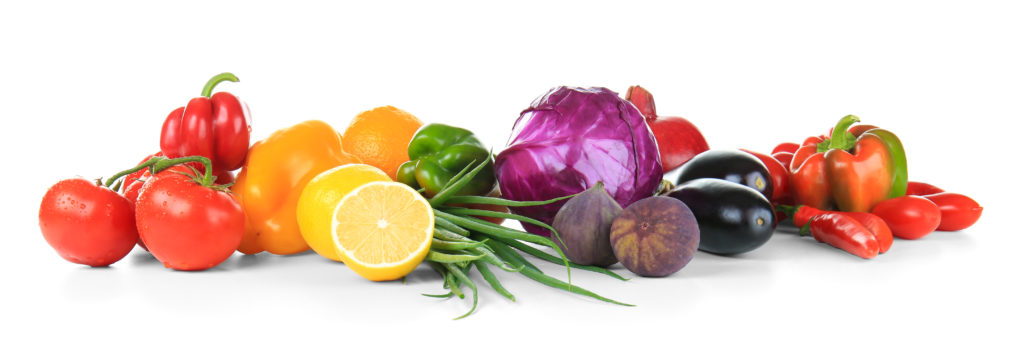
In honor of National Fruits and Veggies Month in September, we’d like to take a moment to celebrate the phytochemicals so richly represented in produce!
What are phytochemicals? For starters, phytochemicals are much better than they sound! They are naturally-occurring compounds found in plants that typically give plants their signature colors, flavors, and aromas. You may have also heard them referred to as “phytonutrients.”
Have I ever heard of any of them? If you are into food and nutrition, you have likely heard of several phytochemicals without even knowing it. Commonly discussed ones include carotenoids (found in red, orange, and green produce), flavonoids (found in citrus, soy products, coffee, and tea), polyphenols (found in wine, grapes, berries, whole grains), and isoflavones (found in soy products). Phytochemicals that may not sound as familiar include terpenes, inositol, and indoles. Cruciferous vegetables (think broccoli, cabbage, kale, cauliflower, brussels sprouts, collard greens) contain many of the aforementioned phytochemical types!
Where are they found? As opposed to many nutrients, phytonutrients are not something you can easily go shopping for in the supplement aisle. Rather, you get them naturally by eating a variety of healthy foods you already love, including fruits, vegetables, legumes, nuts, seeds, herbs, and some beverages like coffee and tea.
What do they do? The nutrition community is constantly on a quest to identify all of the positive and negative compounds found in foods (and there are A LOT of them!) so this area of science is vast and ongoing. Currently, we have evidence that phytochemicals help with the immune system, reduce inflammation associated with cancer, neutralize carcinogens in the body, help protect DNA from damage, slow the growth of cancer cells, and regulate hormones. I always tell patients: we don’t know everything yet about how and why plant foods are so good for us—but what we do know is that most people should eat more of these foods!
Now that I know they are good, how do I get as many as possible? Here are some tips to cover your phytochemical bases:
- Favor plant foods, when possible.
- Eat a variety of fruits and vegetables—the brighter and more flavorful the better!
- Choose soy products for some of your protein servings.
- Add nuts and seeds to your dishes, in moderation (if you have weight to lose, the calories in these can add up).
- Cook with herbs and spices.
BONUS TIP: DYK that there may be up to 4,000 different phytochemicals found in food (or more?!). Stay tuned for more news on the phytochemical front!









